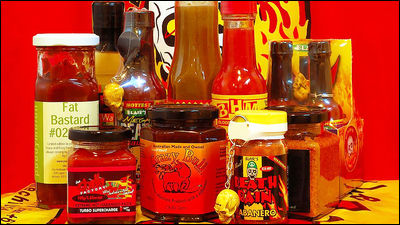It turned out that resistance to pain increases just by making a curse such as 'fuck'

Some people may have inadvertently uttered dirty words such as 'shit' when they inadvertently touched a hot object or hit their feet against furniture and felt pain. From research results on such 'relationship between curse and pain', various things such as 'to mitigate pain by increasing
Frontiers | Swearing as a Response to Pain: Assessing Hypoalgesic Effects of Novel “Swear” Words | Psychology
https://www.frontiersin.org/articles/10.3389/fpsyg.2020.00723/full
Pain Experiment Shows There Really Is Something Soothing About Saying The'f' Word
https://www.sciencealert.com/saying-the-f-word-really-does-make-things-seem-to-hurt-less-pain-experiment-shows
The F-word's hidden superpower: Repeating it can increase your pain threshold | Ars Technica
https://arstechnica.com/science/2020/06/the-f-words-hidden-superpower-repeating-it-can-increase-your-pain-threshold/
The science of why bad words feel so good during painful moments | CBC Radio
https://www.cbc.ca/radio/quirks/the-science-of-why-bad-words-feel-so-good-during-painful-moments-1.5589136

Many people have the experience of involuntarily cursing when they feel pain, and empirically many feel that the pain goes away when they say bad things. However, there are few people who actually study curiosity and pain sensation. The leading expert on this kind of nasty and pain research is
Stephen said he was interested in his wife's giving birth to dirty words, and decided to study the mystery of 'doing a curse alleviate pain?' A 2009 study showed that people who soak their hands in ice water can relieve the pain they feel when they go bad, and they can tolerate more pain. This unique study has received a lot of attention from many, and Stephen received the 2010 Ig Nobel Peace Prize .
In a subsequent study, it was also found that 'the person who usually does not have much curse has a greater analgesic effect by having the curse.' It is not limited to English-speaking people that the pain is alleviated by cursing, but in the study targeting Japanese people, the word 'fucking' was used instead of the F word, but again 'fucking' It was confirmed that the allowable range of pain expanded by muttering.

In a new study, Steven, in collaboration with graduate student Olly Robertson , conducted an experiment using 'fictitious dirty words' instead of F-words. In the experiment, the research team gave 92 subjects a task of 'immersing their hands in ice water kept at a very cold temperature of 3 to 5 degrees to endure the pain as much as possible' and measured the heart rate of the subjects. I measured it.
During this task, subjects tweeted a fixed word once every three seconds. The muttering word is one of 'F word', 'neutral word (eg 'solid' etc.)', 'fouch' and 'twizpipe'. Fouch and twizpipe are researched. It was a fictional word that the team created for this experiment. According to the research team, fouch is a word intended to be bad language, and twizpipe is a word intended to have humorous nuances.
As a result of the experiment, the person who tweeted the fictitious tongue could tolerate only as much pain as the neutral word, but the person who tweeted the F word had a pain threshold of 32%, It turned out that resistance increased by 33%. ``If you put your hands into ice water and curse it, you could endure cold water 18 seconds longer than you wouldn't,'' he said. Point out that it is difficult to endure.

There are many unclear questions about why cursing increases resistance to pain, saying, ``Making a ward that is normally prohibited to say fights or escapes and the reaction turns on, adrenaline There are multiple hypotheses such as 'being secreted' and 'because the brain relaxes by making a curse after stress'.
It is believed that the analgesic effect of cursing is influenced by the environment from childhood, ``While there is no proper understanding of how bad things get power, bad things are learned in childhood, It has been suggested that the dislike of classical conditioning contributes to the emotional arousal of using bad language,' the research team points out. He argued that learning about situations in which he spoke badly and when he used it could be related to the analgesic effects of cursing.

Related Posts:
in Note, Posted by log1h_ik







